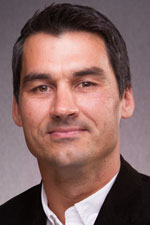
Getting to grips with intricacies of equities, indices and other financial instruments involved hours of reading and endless consultation with brokers as a precursor to making that first trade.
Not only was the trading education a time-consuming one, but brokers were able to levy additional consultation fees on top of those demanded for trades.
Then came the internet, or at least versions thereof.
While digital trading systems, called electronic communications networks, were being used in-house by brokerage firms to display the bidding and asking price as early as 1969, it was only in the 1980s that the true potential of interconnectivity in stock trading was realised.
The ability to present traders with up-to-the-minute information electronically and the traders to then relay this information to investors within minutes became essential to anyone working in the markets.
By the early 2000s every major stock market on the planet had digitised, with Nasdaq recognised as the world leader in terms of electronic trading. However, the proliferation of social networking towards the middle of the decade changed the face of trading forever.
The markets were quick to realise how social media could be of tremendous benefit to the way stocks were bought and sold, and it was not long before the concept of social trading emerged to offer something accessible and easy to understand for lay investors.
Social trading, also known as copy trading, is a process whereby the trades of experienced, expert traders are followed and emulated by individual investors on an online platform. It substantially reduces the risks associated with the trading of financial instruments as followers are able to align their trades with those much more experienced in markets than they are themselves.
The concept has since gained enormous traction around the world, and now South African company Mirrovest has launched what is claimed to be this country's first social or "mirror" (so named because followers mirror the trades of lead traders) trading platform.
With a trading account as little as R10,000, lead traders can begin to reap rewards as their successful trades are mirrored and gains are made in this highly interactive trading environment.
In addition, while lead traders must register in their own name, their trades can be published under an alias in order to protect their identity. Lead traders can choose whether to open a trading account with Mirrovest, or simply link their existing trading account to the Mirrovest platform. The only prerequisite is that the user's platform must be IRESS supported.
In the past year Mirrovest chief executive Earle Loxton and director Etienne Eloff have signed up some of the country's most successful traders as the platform's lead traders, whose moves in the markets will be followed with keen interest by interested investors.
Loxton explained the platform's lead traders were experts in the trading domain, and had exhibited considerable success in investing their own money in traditional stock markets.
"As a lead trader, you should be able to attract followers with your successful track record. Building on the successes of your track record, you should be able to attract followers, who will mirror your every trade," Loxton said.
"Not only do you get the recognition for your ability, reflected in your ranking on Mirrovest and the number of traders who choose to follow you, but you also earn brokerage on each trade received and copied by your followers. Clearly, more followers accelerates your earning potential.
"The concept of social trading is brand new in South Africa, and it has only recently come of age in the United States and Europe. There is no reason why South African traders cannot experience the same great gains in the financial markets with this concept," Loxton said.
He said he encountered social trading after taking a sabbatical from work and started "dabbling" in the foreign exchange market.
"After reading a few books and learning some strategies, I thought, 'There has to be a way to connect with the best traders and simply copy their trades'. Not all of us were born to be top traders. Why not leave the trading to the experts and merely do what they do by copying their every trade?"
"What that experience in the forex copy trading taught me is that there is a huge disconnect between trader and client, who seldom gets a return on his investment. Most forex lead traders run dummy accounts and simply have no concept of money management. With equities, and specifically contracts for difference (CFDs) the leverage is a lot less and therefore far less risky for the client. Having seen how well it worked there, I took the idea to [Mirrovest director] Etienne Eloff, who has been an active trader for years, and from there we have grown the concept into a business"
*Earle Loxton* is a businessman and entrepreneur who has significant experience in starting up companies and growing them into dynamic and successful enterprises.
Most recently, he was a founder of Essential Med, a growing company that specialises in providing affordable health insurance as an alternative to medical aid. He currently serves on the Board of Essential Group and holds directorships in three other unrelated companies.
He is an avid investor with vast experience in the field of copy trading - both in equities and forex. Mirrovest was born from an opportunity to introduce mirror trading to the South African market.